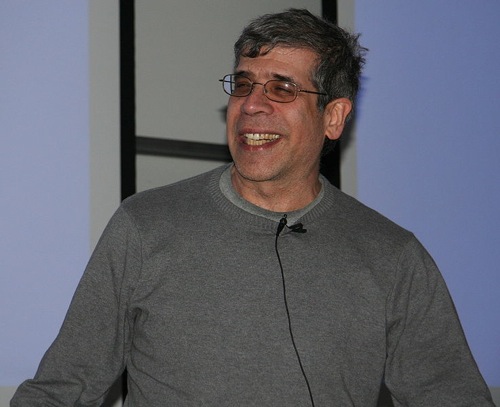
At his website Why Evolution Is True, Jewish atheist and U. of Chicago biologist Jerry Coyne has responded in two posts to my own entry on Chanukah, knee pain, and suboptimal design in creatures as a bogus argument for atheism. (As an aside, note the gentleman’s last name. I’m guessing it started out as Cohen, meaning that he is presumably a cohen, a descendant of Aaron. In Ashkenazic pronunciation the Hebrew name often comes out as coyne. Pending information to the contrary, take a moment to appreciate the irony of his illustrious priestly lineage.) Professor Coyne is full of “Aha’s!” and “Gotcha’s!”
He writes:
[T]he “bad designs” [in creatures] are more than just random flaws in the “design” of organisms: they are flaws that are explicable only if those organisms had evolved from ancestors that were different.
Why do cave fish have nonfunctional eyes? That’s bad design for sure. You could impute it to the quirks of God, but isn’t it more parsimonious to conclude (and we know this independently from molecular data) that those fish evolved from fully-eyed fish that lived above the ground?
No doubt about it. Life has a history. It has been changing in the forms it takes for a very long time and some of that history is inscribed on it, as artifacts of its development. Creatures give birth to other creatures in a chain of descent. They have a lineage, just like cohanim. Some of these descendants enjoy advantages, others exhibit defects. Who would disagree?
A very small part of the suffering in our world can be linked to these artifacts of history. Knee pain or back pain might be examples. So what? This is an example of the classic Darwinist straw-man tactic of making it appear that intelligent design proponents doubt not only the sufficiency of natural selection in explaining life’s history but that life has a history at all. In this connection, Professor Coyne berates me as a “creationist,” usually taken to mean a Biblical literalist, but I am not a creationist. Words have meanings.
Yet as Coyne observes, explaining evil and suffering is of course a serious challenge to religious believers:
In the end, theodicy is the Achilles heel of religion: attempts to explain evil just make theologians look more ridiculous and unconvincing.
He therefore poses what he thinks is a devastating rebuke:
What kind of world would convince you that there is no God?
If he finds such a question meaningful, then he must answer first because I posed it first, or anyway its obverse, in my original entry. What kind of world would convince you, Jerry Coyne, or any atheist, that there is a God? No vague waving of hands, if you don’t mind. No sarcastic rhetorical questions, which Professor Coyne does offer. (“I may be wrong, but couldn’t God have arranged the world so that people could ‘grow and change spiritually’ without horrible things happening to innocents?”) A straightforward reply in concrete terms would work well.
Exactly what level of evil could the hypothetical Deity — perfectly good and all powerful — tolerate so that his existence retained the advantage of being plausible to you? I argued earlier that if we’re going to say that God’s permitting the suffering of an innocent creature is the ultimate and conclusive point in favor of disbelief in him, then that would have to include any such suffering, any at all. If leukemia in children would cross the line, what about arthritis in senior citizens? Remember we’re talking about a God without limits on his goodness and power. If he’s got no excuse for a lot of undeserved pain in the world, he’s got no excuse for any.
If Jerry Coyne is consistent with his premise, then the only world into which he should be willing to admit God is the perfect and perfectly boring and insipid turtle terrarium that I described, a place that no God that I can imagine would bother to create in the first place.
